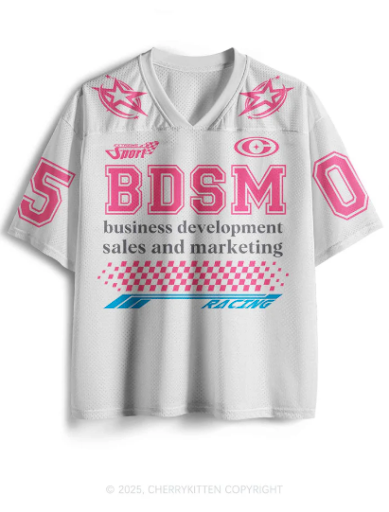Extroly com has emerged as a dynamic platform designed to streamline digital productivity, communication, and online organization for individuals and businesses alike. In a world filled with fast-paced digital demands and increasingly complex workflows, Extroly com solves a crucial problem—bringing useful tools together under one cohesive system. Many platforms focus on either communication or task management, but Extroly.com blends multiple functions into a single, user-friendly interface. This makes it an attractive choice for users seeking a centralized hub to manage their digital lives.
The platform’s relevance continues to grow as remote work, content creation, and online collaboration become the norm rather than the exception. Extroly.com offers intuitive tools that simplify these tasks, allowing users to focus on outcomes rather than navigating disjointed systems. Whether you are a student managing assignments, a small business owner coordinating team tasks, or a content creator organizing your ideas and digital assets, Extroly.com offers features tailored to your needs. With the rising demand for efficient digital ecosystems, understanding the capabilities of Extroly.com is essential.
The Origins and Evolution of Extroly.com
Extroly.com began as a small project aimed at addressing a widespread issue in digital productivity: scattered tools and fragmented workflows. Its founders noticed that users often juggled multiple apps for communication, planning, storage, and analytics—leading to wasted time and unnecessary complication. With a vision to combine these needs into one coherent platform, the creators established Extroly.com as a tool that evolves with user behavior. From its early stages, the platform prioritized usability, customization, and efficiency, recognizing the need for flexible software adaptable to different work styles.
As Extroly.com grew, it became clear that user feedback would play a major role in shaping future updates. The development team continually refined the platform, integrating new features such as AI automation, improved collaborative spaces, and enhanced analytics dashboards. Over time, Extroly.com expanded from a simple productivity app into a comprehensive digital hub. Its evolution reflects modern expectations—users want smarter tools, quicker workflows, and more personalized experiences. Today, Extroly.com stands as the result of continuous innovation driven largely by its community.
Understanding the Core Features of Extroly.com
Extroly.com’s core features revolve around its user-friendly dashboard, where users can access everything from task management to performance tracking. The dashboard is designed to offer clarity and ease, minimizing learning curves for new users. At its center is an intuitive layout that highlights ongoing tasks, recent activities, and essential tools. The platform’s analytic modules also provide real-time insights, helping individuals and teams make better decisions based on accurate data. These insights enhance productivity by highlighting efficiency gaps, time usage, and overall performance.
Another essential component of Extroly.com’s feature suite is its personalization capability. Users can adjust their profiles, workspace themes, and tool settings to match their preferences. This enhances comfort and accessibility, ensuring the platform works the way users need it to. Collaboration is another built-in feature, allowing users to share files, assign tasks, or communicate within digital workspaces. These functions make Extroly.com particularly valuable for both remote teams and individuals seeking structured digital environments. By combining these core features, the platform supports a wide range of digital needs in one place.
How Extroly.com Works Behind the Scenes
Behind its sleek interface, Extroly.com is powered by a robust technology stack designed for speed, security, and scalability. The platform uses advanced cloud infrastructure to store data efficiently and ensure uninterrupted performance regardless of user load. This allows the system to function smoothly even during periods of high activity. The backend framework integrates modern programming languages and database structures, ensuring functionality remains reliable while also supporting rapid updates and feature expansions. This technical foundation allows Extroly.com to remain future-proof.
Security is a top priority for Extroly.com, especially as digital threats become more sophisticated. The system incorporates encrypted data transmission, advanced firewalls, and security protocols designed to protect user information. Extroly.com also integrates AI-driven automation tools that enhance productivity by managing repetitive tasks, generating suggestions, and improving workflow efficiency. These automated functionalities help users focus more on meaningful tasks rather than technical duties. The platform’s behind-the-scenes engineering ensures both smooth performance and dependable protection, making it a trustworthy tool in today’s digital-centric world.
Setting Up Your Extroly.com Account
Creating an Extroly.com account is simple, making it accessible for beginners and tech-savvy users alike. The signup process starts with basic user information, password creation, and optional identity verification. Once the account is created, the platform guides new users through an onboarding tour, explaining how core features work and where important tools are located. This step-by-step introduction ensures that even new users can begin navigating the platform with confidence and ease. After setup, users can immediately explore features such as task boards, communication channels, and storage modules.
The next step involves customizing your personal profile to match your workflow. Extroly.com allows you to configure your settings, choose workspace templates, sync external apps, and integrate devices for a seamless cross-platform experience. This personalization ensures that the interface and tools reflect your preferences. Integrating additional tools such as calendars, email clients, or cloud storage apps enhances efficiency by centralizing information. The process of syncing devices and tools helps build a unified ecosystem, allowing you to access your data and tasks from anywhere without losing continuity.
Exploring the User Interface
Extroly.com’s interface is designed to be both simple and powerful, ensuring users can navigate without feeling overwhelmed. The navigation menu, located at the side or top depending on the chosen layout, provides direct access to key modules such as tasks, analytics, messages, and files. Each section is visually separated for clarity, helping users intuitively locate the tools they need. This intuitive layout reduces confusion and improves productivity, particularly for users managing multiple responsibilities or projects.
Customization is at the core of Extroly com’s UI experience. Users can modify the interface by rearranging modules, switching themes, adjusting layouts, or enabling compact mode. These custom options make the platform adaptable to varying preferences, whether you prefer minimal designs or detailed, content-rich displays. Extroly.com also offers widgets for at-a-glance information, allowing users to keep essential metrics or project summaries displayed on their dashboard. For first-time users, the guided orientation feature helps explain layout components and quick-access tools, ensuring a smooth learning curve.
Tools and Functional Modules Within Extroly.com
Extroly.com offers a wide range of tools designed to enhance productivity and simplify online workflows. The task management module helps users create, organize, and track tasks with options for deadlines, labels, categories, and progress indicators. This module is ideal for individuals juggling personal responsibilities and for teams managing complex projects. Additionally, built-in automation options streamline repetitive processes, allowing tasks to be automatically assigned, categorized, or moved according to user-defined rules.
Communication tools are equally robust. Users can message team members, organize discussions into channels, and share files directly through the platform. This eliminates the need for multiple messaging apps, keeping all communication centralized and easy to access. Extroly.com also includes storage and content organization tools that allow users to upload, categorize, and retrieve digital assets quickly. Whether you’re storing documents, images, or important notes, the platform ensures everything remains neatly organized and searchable. These combined modules make Extroly.com a complete solution for digital organization.
Extroly.com for Businesses and Teams
For businesses, Extroly.com serves as a powerful platform that streamlines communication and collaboration. Teams can use shared workspaces to manage projects, track deadlines, and assign roles. This eliminates confusion and keeps everyone aligned on goals and expectations. The platform’s real-time collaboration tools allow team members to edit files together, engage in chat discussions, and update progress instantly. Such features enhance transparency and foster efficient teamwork across remote or hybrid environments.
Businesses also benefit from Extroly.com’s analytics tools, which monitor productivity and workflow patterns. Managers can evaluate team performance, identify barriers, and make data-driven decisions to enhance efficiency. Case studies from various companies show how Extroly.com has improved project completion rates, communication quality, and operational structure. By offering an integrated approach to teamwork, Extroly.com helps organizations streamline their processes, reduce software costs, and strengthen their digital workflows.
Extroly.com for Individuals
Individuals use Extroly.com to enhance personal productivity and stay organized. The platform’s task manager helps users plan their day, set priorities, and track progress toward goals. Whether you’re studying, working remotely, or balancing daily responsibilities, Extroly.com offers tools that simplify planning. Its habit-tracking and reminder features help users stay consistent, while the analytics module provides insights into personal productivity patterns.
The platform also serves as a space for developing a personal digital identity. Users can store notes, creative projects, files, and ideas in one location, making it easier to revisit and refine them. Extroly.com’s flexible customization ensures that individuals can shape the interface to align with their personal workflow styles. This adaptability makes the platform valuable for students, freelancers, and hobbyists seeking a structured digital environment. By supporting both creativity and organization, Extroly com empowers individuals to grow personally and professionally.
Extroly.com Integrations
One of the platform’s strengths lies in its ability to integrate with third-party apps. Extroly.com supports connections with cloud storage services, email clients, social media platforms, calendar applications, and productivity tools. Integrating these services transforms Extroly.com into a centralized control panel for your digital life. Users can access emails, sync calendars, or retrieve cloud files without switching between apps. This reduces distractions and helps maintain workflow focus.
Setting up integrations is straightforward—users simply connect services through the settings menu and authorize permissions. The platform’s integration engine ensures data flows smoothly between Extroly.com and external applications. However, users may occasionally encounter issues such as syncing delays or permission errors. The troubleshooting guide within Extroly.com offers simple solutions for these problems, such as reconnecting accounts or checking API access. Integrations make the platform more powerful and customizable, enabling users to create a truly personalized digital ecosystem.
Best Practices for Getting the Most Out of Extroly.com
To maximize the benefits of Extroly com, users should adopt specific best practices. Time-saving techniques, such as using keyboard shortcuts, templates, and automation tools, streamline everyday workflows. For example, task templates reduce repetitive setup work, while automation ensures tasks move through your workflow automatically. These techniques significantly improve efficiency, especially for users handling large volumes of digital work.
Optimization strategies for power users include advanced tagging systems, structured folder hierarchies, and customized dashboards. These allow users to create a precise digital structure that mirrors their real-world responsibilities. Avoiding common mistakes—such as failing to back up data or ignoring workspace organization—helps maintain long-term efficiency. By implementing these best practices, users can turn Extroly.com into a finely tuned productivity machine tailored to their unique needs.
Advanced Features and Hidden Tools
Beyond its standard features, Extroly.com includes advanced settings for professionals seeking greater control. Users can adjust backend configurations, manage permissions, and create automation scripts for complex workflows. These advanced features are particularly beneficial for developers, project managers, and analysts who require deeper platform customization. Accessing these tools unlocks powerful capabilities that significantly elevate productivity.
The platform also includes hidden shortcuts and lesser-known tools that enhance navigation and efficiency. Expert users often rely on these to speed up repetitive tasks or access features not immediately visible in the main interface. For example, hidden file organization commands, priority-level shortcuts, or advanced analytics tags can streamline work even further. Discovering these tools helps users unlock the full potential of Extroly.com, transforming the experience from simple usage to expert-level performance.
Extroly.com Mobile Experience
Extroly.com’s mobile app extends the platform’s functionality to smartphones and tablets, making it convenient for users who manage tasks on the go. The mobile version preserves most core features, including task management, messaging, file storage, and analytics. Its interface is optimized for smaller screens, ensuring all tools remain accessible and intuitive. Whether you’re attending a meeting, traveling, or working remotely, the app ensures you stay connected to your workflow.
While the mobile and desktop versions share many similarities, some differences remain. The mobile app emphasizes quick actions such as checking tasks, sending messages, and making updates. Desktop users, however, enjoy a deeper layout suitable for large-scale project management. Syncing between devices ensures continuity—you can start a task on your computer and finish it on your phone without losing progress. This seamless experience allows users to maintain productivity anywhere.
Performance, Speed, and Reliability
Extroly.com prioritizes speed and reliability to ensure users can depend on the platform throughout their workday. The cloud infrastructure supporting the system ensures uptime consistency and prevents performance drops during high-traffic periods. Even with large amounts of data or extensive tasks, the platform remains stable, responsive, and efficient. This level of reliability is crucial for teams working under deadlines or individuals managing time-sensitive projects.
When performance issues occur, Extroly.com provides useful troubleshooting tools and customer support. Users can diagnose errors, clear cached data, or perform quick resets to resolve minor problems. More complex issues are addressed through responsive customer service channels that offer personalized assistance. The platform’s commitment to speed and reliability makes it a dependable choice for users who value smooth, uninterrupted workflows.
Security and User Protection
Security is one of Extroly com’s strongest pillars. The platform employs robust encryption protocols to protect user data during storage and transmission. Multi-layered security measures guard against unauthorized access, data breaches, and cyber threats. For added protection, users can enable two-factor authentication, which enhances login security by requiring additional verification. These security features ensure that sensitive information remains safe within the platform.
User protection extends beyond technical measures—Extroly.com also provides privacy controls, customizable permissions, and access restrictions for team environments. Users can manage who views, edits, or shares files, ensuring sensitive documents remain in the right hands. The platform’s user-recommended practices further enhance safety, encouraging strong passwords, regular updates, and careful sharing habits. This comprehensive security system fosters trust and peace of mind.
Cost, Pricing Models, and Subscription Plans
Extroly com offers several pricing tiers to accommodate different user needs. The free version provides access to essential tools, making it ideal for students or individuals exploring the platform. While basic, it remains powerful enough to handle everyday tasks. The premium plans, however, unlock advanced features such as expanded storage, enhanced analytics, advanced automation, and improved collaboration tools. These plans provide greater value for power users and businesses seeking professional-grade functionalities.
Each tier is structured to offer flexibility without overwhelming the user. Subscription levels include individual, team, and enterprise plans, each equipped with tools tailored to specific needs. Users can switch plans based on their changing requirements, ensuring they always have access to the right tools at the right time. This adaptability makes Extroly com a practical investment.
Customer Support and User Resources
Extroly.com offers multiple support channels to assist users, including email support, chat systems, and a dedicated help center. The platform’s extensive documentation provides step-by-step guides, video tutorials, and troubleshooting tips. These resources are designed to help users learn the platform quickly and resolve issues without needing external assistance. The help center remains updated as new features are added, ensuring ongoing user support.
Community-driven resources also play a vital role. Extroly.com’s online forums, user groups, and social communities allow individuals to share tips, ask questions, and engage with others. These communities foster collaboration and make learning more interactive. Whether you’re looking for best practices or creative ways to use features, these spaces provide valuable insights.
Extroly com Compared to Competitors
While many productivity platforms offer task management, communication tools, or data storage, Extroly.com stands out by merging these features into a unified system. Its biggest advantage lies in its versatility and integration capabilities. Unlike competitors specializing in one category, Extroly.com provides an all-in-one environment that eliminates the need for multiple apps. This cohesiveness enhances productivity and reduces the inefficiencies associated with switching between tools.
However, users may find that certain specialized platforms offer more advanced features in specific areas. Extroly.com compensates for this by emphasizing balance—its tools are broad, effective, and well-integrated. User reviews consistently highlight its ease of use, customization options, and strong collaboration features. These strengths make Extroly.com a powerful choice among productivity platforms.
Future Developments and Roadmap
Extroly.com’s roadmap includes exciting updates aimed at enhancing user experience. Upcoming features include expanded AI tools, smarter automation scripts, and deeper analytics dashboards. The platform also plans to introduce more integrations with emerging digital tools, ensuring it remains compatible with evolving technologies. These future upgrades aim to streamline workflows even further while keeping the user in control.
Another major focus is community engagement. Extroly.com encourages user feedback, using it to shape upcoming updates and long-term development goals. The development team recognizes that user needs evolve quickly in the digital era, and they aim to anticipate those needs through innovation. This forward-looking approach ensures that Extroly.com remains relevant, flexible, and capable of supporting modern users for years to come.
Final Tips for Success With Extroly com
To experience Extroly com’s full potential, users should focus on building sustainable workflows. This begins with organizing tasks efficiently, customizing dashboards, and taking advantage of automation features. Establishing consistency is key—daily check-ins, regular updates, and structured task categories help maintain productivity over time. When used effectively, the platform can streamline both personal and professional life.
Continuing to explore the platform’s tools also leads to better results. Combining Extroly com with other productivity systems, such as time-blocking or digital calendars, creates a powerful synergy. Users should experiment with different layouts and strategies to find what works best. With commitment and creativity, Extroly com becomes an indispensable tool that drives long-term success.
Conclusion
Extroly com is a comprehensive digital platform designed to enhance organization, streamline communication, and support productivity. Its blend of intuitive tools, customizable settings, and high-performance infrastructure makes it valuable for individuals and businesses alike. As digital demands continue to grow, Extroly com evolves to meet those needs, offering a future-ready solution for managing work and life in one place. Whether you’re a beginner or an advanced user, the platform provides endless opportunities to build efficient workflows and achieve your goals.
FAQs
1. What is Extroly com used for?
Extroly com is a productivity and collaboration platform designed for task management, communication, storage, and workflow organization.
2. Is Extroly com free or paid?
It offers both free and premium plans depending on user needs.
3. How secure is Extroly com?
The platform uses encryption, firewalls, and authentication tools to protect user data.
4. Can teams use Extroly com collaboratively?
Yes, the platform offers shared workspaces, messaging, file sharing, and team analytics.
5. Does Extroly com integrate with other apps?
Yes, it integrates with cloud storage services, email apps, calendars, and more.
Read more: Shiinabr










